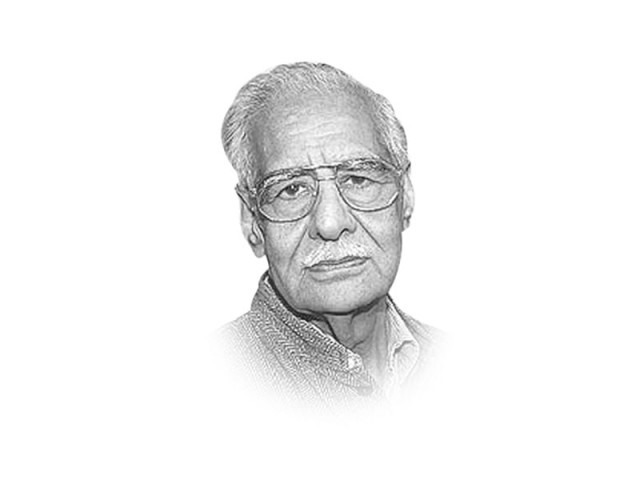Bangladesh’s political future
Sheikh Hasina does not want to step down and looks like she will go to any length to retain power.

The writer is a syndicated columnist and a former member of India’s Rajya Sabha
I can say after my five-day stay in Bangladesh that the polls would be fair if Khalida Zia boycotts them, which looks very much on the cards. Sheikh Hasina does not want to step down and looks like she will go to any length to retain power. She amended the state’s Constitution, which provided for a caretaker government, headed by the outgoing retired Supreme Court chief justice, to supervise the polls.
What amazes me is the alacrity with which Sheikh Hasina has frittered away her four-fifth majority in parliament. Her mis-governance has increased corruption, contaminating even the government functionaries in villages. Begum Khalida has aggravated the situation by organising a hartal every third day, hitting the common man. Sheikh Hasina, too, had organised hartals when she was in the wilderness.
The two Begums, becoming prime minister alternatively, have talked to each other on the phone probably for the first time. There is no breakthrough, not even via the conciliators, because of personal hostility. There is enough evidence to support the suspicion that Begum Khalida’s close associates were behind the attack on Sheikh Hasina’s meeting when she was out of power.
The Jamaat-e-Islami is the biggest gainer. Methodically and relentlessly, it has created cells in all segments of society, including the intelligentsia. The Jamaat has the advantage of the BNP’s dependence on it. The two were together in the government which Begum Khalida headed. They would be the coalition partners if and when the BNP comes to power.
The worse fallout has been the birth of fundamentalism. It has been increasing because of the poisonous speeches made by clerics. It goes to the credit of Sheikh Hasina that she has kept the fight against fundamentalists on top of her agenda and has harked back on the days of secularism which Sheikh Mujibur Rahman had ushered in.
Such sentiments have brought Sheikh Hasina popularity in India which too has adopted pluralism as the basic structure of its polity. But just as Narendra Modi, the BJP’s prime ministerial candidate, has cast shadows on its secular credentials, Khalida Zia has done so in Bangladesh. A country which evoked hope when it gained independence on the principle that religion would not be mixed with politics is today exhibiting an entirely different scenario. Poverty is opium for the masses as Karl Marx said.
The need of the Left is felt immensely. Bangladesh had a strong community party. Now it is reduced to a rump and tends to tilt towards the establishment. Tragically, it is the same old story in the entire subcontinent, including India. Had there been hope of the Left’s revival, 70 per cent of the subcontinent’s people might not have listened to the religious appeal as a force to propel progress. The Left could have retrieved the situation.
Over the years, I have found self-confidence and optimism increasing among the people. Despite the internal turmoil, Bangladesh has sustained a six per cent growth for the last decade. Agriculture growth has made the country self-sufficient while the garment industry, although not following labour laws, is thriving.
The future is no doubt unpredictable, but may see large-scale violence, particularly at the time of elections because Begum Khalida is opposed to the polls under Sheikh Hasina. Many people think that the army can come back as it did some years ago. But it withdrew when it found that the people were committed to democracy even if it had been disfigured by the two Begums.
One leading editor has gone to the extent of suggesting intervention by the judiciary. He says, “We have nowhere to turn to but to the custodians of our Constitution of law and citizens’ rights.”
Published in The Express Tribune, December 4th, 2013.
Like Opinion & Editorial on Facebook, follow @ETOpEd on Twitter to receive all updates on all our daily pieces.













COMMENTS
Comments are moderated and generally will be posted if they are on-topic and not abusive.
For more information, please see our Comments FAQ